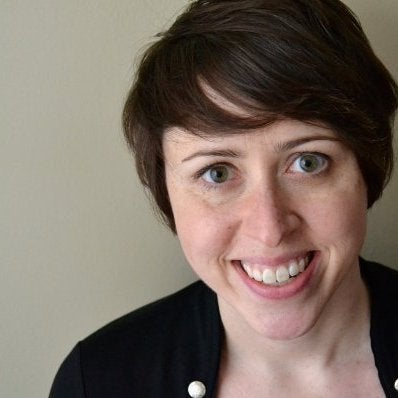CCTer Becky White presents at STGlobal, talks about her research

Talk about your studies at CCT. How have they evolved? What opportunities have you found?
At CCT, I set out to investigate polarization of views and extremism online, along with the technologies that exacerbate or help bridge those divides. I’ve refined that over my time here to focus on Artificial Intelligence (AI), accountability, and public policy. My current research project involves mapping out the life cycle of machine learning classification systems and identifying the possible points for intervention to help make sure these systems work for all members of society.
Thanks to CCT, I’m a research assistant on Professor Owen’s James Madison Legacy Project team. I help with data collection and analysis for this three-year, U.S.-wide project about civic education. I also got to try my hand at radio storytelling, something I’ve always wanted to do, thanks to Georgetown Forum Radio and Professors Barba and Osborn.
Tell us about your recent presentation at the STGlobal conference. What have you learned from presenting at academic conferences?
At the STGlobal conference in March, I presented on research I did last semester about natural language processing (NLP), extremist speech, and intent. Natural language processing, or computational linguistics, uses computer code to model the languages that humans grow up speaking so machines can interpret them. Governments and companies are using NLP tools to identify and filter content online. I looked at the use of these tools to classify text according to whether it can be considered extremist or not, very generally speaking. At STGlobal, I discussed the limits of those tools and some of the challenges presented by their use.
I don’t plan to continue in academia after graduation, but I still got a lot out of the conference experience. It was a terrific opportunity to get external feedback on my research, including from computer scientists. It also gave me a chance to practice communicating complicated topics to a generalist audience—the attendees all focused on science and technology broadly speaking, but their specific areas of expertise varied widely.
Where do you hope your research and studies will take you, and what would be your ideal job in the future?
I’m exploring two paths for life following graduation. One is in the public policy space—working for organizations that collaborate with the various forces interested in accountable AI to help develop standards and best practices, educate stakeholders, and generally solve problems. The other is with companies that are developing machine learning technology—working as part of project teams that are building accountable systems.
- Tagged
- news